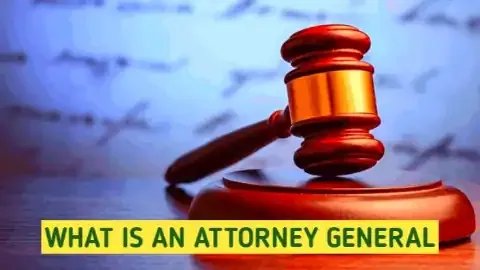What Is an Attorney General
The position of Attorney General holds significant importance in the legal and governmental landscape of a country. However, many people may not fully understand what an Attorney General is and what their role entails.
In this comprehensive article, we will delve into the definition, functions, and responsibilities of an Attorney General. From their role as the chief legal advisor to the government to their involvement in law enforcement and public interest matters, we will explore the diverse aspects of this crucial position.
Defining the Attorney General
This section will provide a clear definition of the Attorney General, explaining their position as a high-ranking legal officer who serves as the principal legal advisor to the government. It will discuss how the Attorney General is typically appointed and the qualifications and experience required for this role. Additionally, it will touch on the historical origins of the position.
Role as Chief Legal Advisor
The Attorney General serves as the chief legal advisor to the government, and this section will delve into the significance and scope of this role.
It will explain how the Attorney General provides legal counsel, guidance, and opinions on various matters to assist the government in decision-making. It will also highlight the Attorney General's responsibility to ensure that the government's actions are in compliance with the law.
Read more: How to Get Power of Attorney
Law Enforcement and Prosecution
One of the key responsibilities of the Attorney General is overseeing law enforcement and prosecution. This section will discuss the role of the Attorney General in supervising and coordinating law enforcement agencies, such as the police and investigative bodies.
It will also explore their involvement in the prosecution of criminal cases and their authority to initiate or intervene in legal proceedings in the public interest.
Representation in Litigation
The Attorney General often represents the government or state in legal proceedings. This section will explain the Attorney General's role in litigation, including representing the government in court, defending the government's interests, and initiating legal actions on behalf of the government.
It will also touch on the Attorney General's authority to intervene in private legal disputes involving matters of public interest.
Read more: What Is a District Attorney
Safeguarding the Rule of Law
The Attorney General plays a crucial role in upholding the rule of law. This section will discuss how the Attorney General acts as a guardian of the legal system, ensuring that laws are applied fairly and consistently.
It will explore their responsibility to protect constitutional rights, promote justice, and prevent abuses of power. It will also touch on their role in reviewing legislation for constitutionality.
Public Interest Advocacy
Beyond their advisory and enforcement functions, the Attorney General often engages in public interest advocacy.
This section will explore how the Attorney General may promote and advocate for legal reforms, human rights, and social justice issues.
It will discuss their involvement in addressing systemic problems, representing marginalized communities, and advancing the public interest through litigation or other means.
Read more: How Does a Mortgage Work
Cooperation with Other Government Agencies
The Attorney General collaborates with various government agencies to fulfill their responsibilities effectively.
This section will highlight the importance of interagency cooperation, discussing how the Attorney General works closely with law enforcement agencies, regulatory bodies, and other government departments to ensure the proper administration of justice and the enforcement of laws.
Relationship with the Judiciary
The Attorney General's relationship with the judiciary is a vital aspect of their role. This section will explore how the Attorney General interacts with the judiciary, including their responsibility to provide legal opinions to judges and courts.
It will also touch on the Attorney General's authority to intervene in legal cases and their role in defending the government's actions before the courts.
Read more: What Is a Second Mortgage
International Legal Affairs
In an increasingly interconnected world, the Attorney General may be involved in international legal matters. This section will discuss the Attorney General's role in international legal affairs, such as representing the government in international courts or tribunals, negotiating treaties, and cooperating with other countries on legal issues of mutual concern.
Accountability and Independence
Accountability and independence are crucial aspects of the Attorney General's role. This section will explore the mechanisms in place to ensure that the Attorney General acts with integrity and impartiality.
It will discuss the importance of maintaining the independence of the office from political interference and the need for transparency in decision-making.
Read more: What Is Mortgage Insurance
Conclusion
The Attorney General is a pivotal figure in the legal system, serving as the chief legal advisor to the government and upholding the rule of law.
Through their multifaceted responsibilities, including providing legal counsel, overseeing law enforcement, representing the government in court, and advocating for the public interest, the Attorney General plays a vital role in promoting justice, protecting constitutional rights, and ensuring the proper functioning of government.
By understanding the significance and scope of the Attorney General's role, we can appreciate the crucial role they play in upholding the principles of justice and the rule of law.

